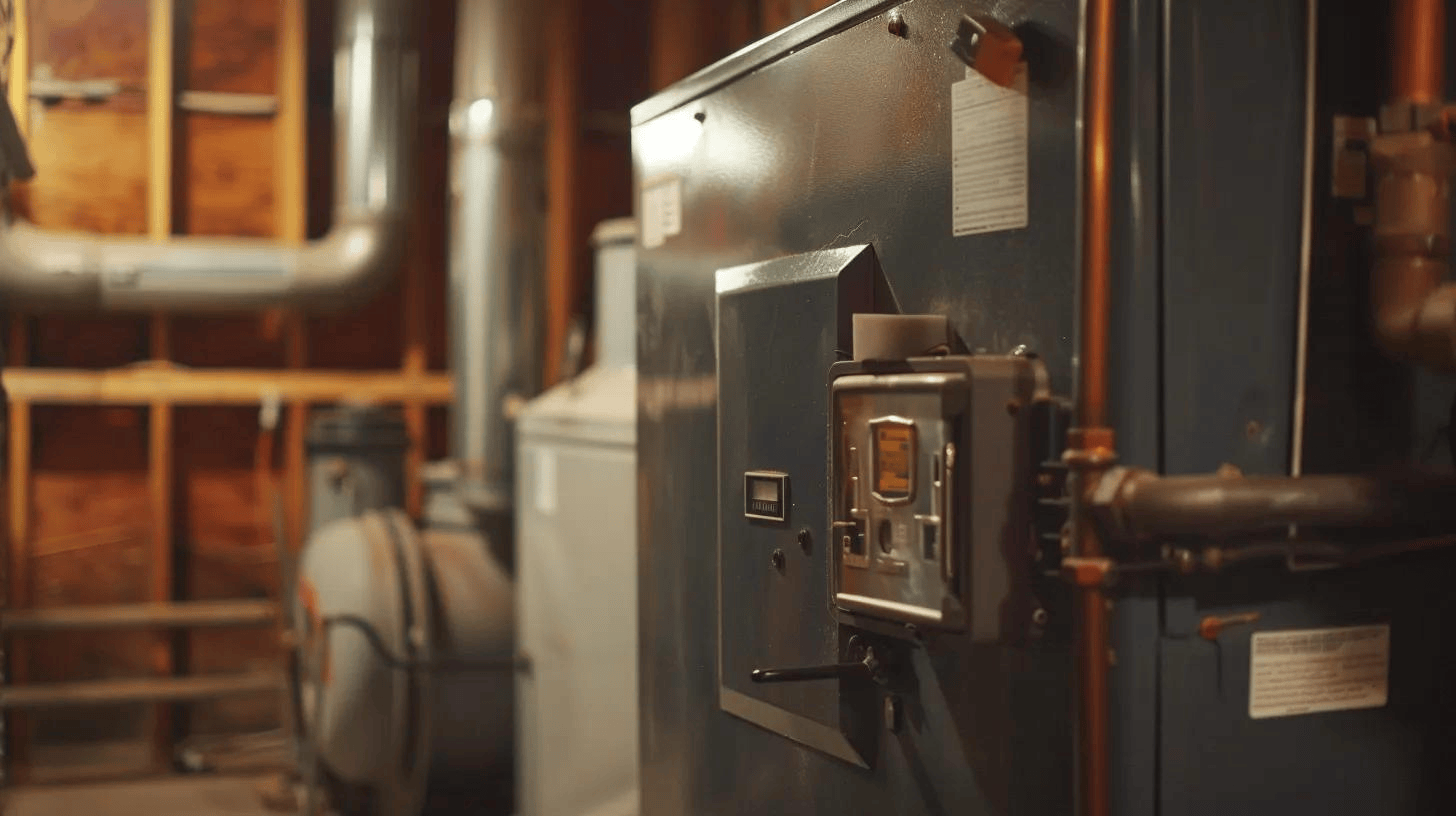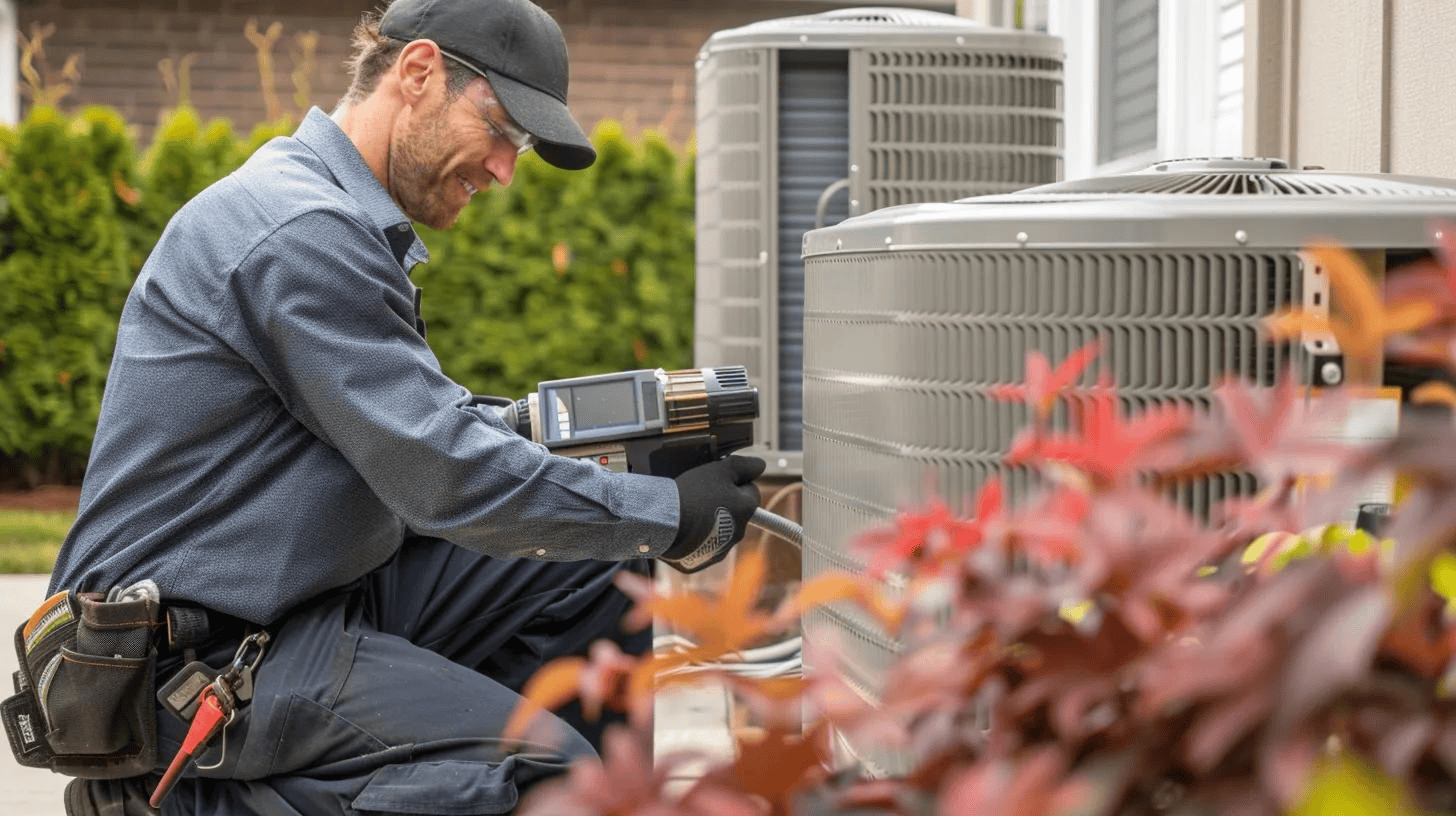Strange noises coming from your heating system can quickly disrupt the comfort of your home in Salem. A quiet hum is normal, but sounds like banging, squealing, or rattling could signal something's wrong. Many of these noises don’t go away on their own and might point to more serious issues that build up over time. If left alone, they can lead to higher repair costs, safety concerns, or full system breakdowns when you need heat the most.
It's easy to ignore unusual sounds, especially if your system still heats the house. But identifying them early can help prevent expensive repairs later. Whether it’s a sharp thump when your furnace kicks on or a constant whistling near your vents, catching these warning signs early can go a long way in keeping your heating system running smoothly when colder weather sets in.
What Different Heating Noises Could Mean
Not all heating noises are the same, and each sound can come from a different part of your HVAC system. Paying attention to what you hear makes it easier to understand what might be going wrong.
Here are some of the most common noises homeowners in Salem report:
- Whistling or Squealing
A high-pitched whistling often means restricted airflow. This might be caused by a clogged filter, closed vent, or something lodged in the ductwork. Squealing could also point to belt or motor problems that are starting to wear down.
- Banging or Clanking
Loud banging when the system turns on could be caused by a dirty burner or a problem with the ignition. If the sound continues, it might be due to loose or broken internal parts that need to be secured or replaced.
- Rattling or Rumbling
These sounds usually come from something loose inside the equipment, such as a panel or screw. If the noise feels deeper or more of a rumble, it could point to burner problems or issues with airflow.
- Humming or Buzzing
A constant hum isn’t always bad, but if it gets louder over time, it might be linked to electrical elements like a failing capacitor. Buzzing sounds may also be caused by loose wiring or parts vibrating during operation.
Ignoring unusual noises could push your system harder than it's built for, causing faster wear and poor heating performance over time. Understanding which sounds to listen for can help you spot developing issues before they become bigger problems.
What’s Causing These Heating System Noises?
Unusual heating sounds don’t happen without a reason. They usually point toward something either damaged, unbalanced, or blocked within the system. Whether parts have shifted slightly or airflow is getting restricted, these problems tend to get worse the longer they’re left alone.
Here are a few of the more common reasons noise issues develop:
1. Loose or Worn-Out Components
Fan blades, screws, or metal panels can come loose over time from system vibrations or wear. If something is rattling or banging around inside the unit, that’s usually caused by something that needs tightening or replacement.
2. Airflow Blockages
When filters are clogged or vents are blocked, air has to work harder to move through the system. This pressure can cause odd sounds, especially whistling or popping from the ducts.
3. Ignition or Burner Issues
Delays in ignition or buildup in burners can lead to small explosions that sound like banging. These issues are common in gas furnaces and should be taken seriously, especially if you notice strong gas smells or repeated misfires.
4. Motor and Fan Problems
If your heater has a failed bearing or struggling motor, it might hum, squeal, or buzz as it runs. These components deal with a lot of strain, especially during frequent heating cycles in late fall and winter.
One homeowner in Salem mentioned a loud knocking sound that started overnight. They had recently turned the heat on for the season, and over the next few days, the noise grew louder. A cracked blower wheel and a worn igniter were both at fault. Catching that sound early helped prevent total system failure heading into colder months.
Staying alert to strange sounds and knowing what could be behind them makes all the difference. Simple problems like a loose panel don't take much to fix, but noisier, repeating issues usually mean something deeper is going on.
What Salem Homeowners Should Check First
Some odd heating sounds can be stopped or reduced with simple steps, but others need skilled hands. The key is knowing when something is safe to check on your own and when it’s safer to leave the solution to our professionals.
Start with this basic checklist if your heating system starts making strange noises:
- Check and replace your air filter. Clogged filters restrict airflow and can make your system whistle or strain.
- Make sure all supply and return vents are fully open and free of obstructions like furniture, rugs, or curtains.
- Inspect visible ductwork for signs of damage or loose sections.
- Look for any screws or panels that appear loose and fasten gently if needed.
- Listen to when the noise happens—right at startup, during heating, or when it shuts off. That clue helps narrow down the cause.
While some homeowners in Salem might feel confident tightening an access panel or moving a blocked vent, it’s best to avoid opening up the inside of your furnace or heat pump without help. Noises coming from deeper inside the unit, such as blowers, burners, and motors, often involve electrical parts or gas components that aren’t safe to handle on your own.
If you’ve gone through the checklist and the sound is still there, or if it’s loud and worsening, don’t wait for it to become a full breakdown. Contacting our professionals will save time and lower the risk of more damage.
Why Waiting Can Make Things Worse
Unusual furnace or heat pump noises are rarely harmless. Some people put them off, hoping they’ll go away on their own, especially if heat is still coming through the vents. That delay could cause more wear on parts, add stress to the system, and lead to higher repair costs or in some cases, even the need for full replacement.
Delayed service also increases the chance of a complete shutdown during colder weather, when you’re relying on your equipment to keep your home safe and warm. And if noises are tied to burners, ignition problems, or electrical issues, they could introduce fire or gas risks if not taken care of quickly.
By reaching out for professional help early, technicians can troubleshoot the source of the sound before it spreads to other parts of your system. They’ll check for loose parts, test motors and blowers, and inspect connections to make sure everything’s working the way it should. Heating systems are designed to run quietly, so if yours has gotten noisy, something’s not working right.
Keep Your Salem Home Warm and Quiet
Heating noises usually start small, and that’s when they’re the easiest to repair. A quick response can make the difference between a fast adjustment and a far more expensive fix. Sounds like rattling, buzzing, or banging might seem minor, but they always mean something’s not working as expected.
By staying alert to odd sounds, checking the basics, and calling in our technicians when needed, you protect your comfort, your home, and your system’s lifespan. A heating system should fade into the background, not draw attention every time it turns on. Quick action now helps keep your home stable, warm, and free from avoidable stress during the colder months.
Strange noises from your heating equipment can quickly escalate into bigger problems if ignored. If you’re noticing signs of trouble, it may be time to schedule professional heating repair in Salem with Woods Family Heating and Air. For a quick estimate or to book a service visit, please contact us today.








